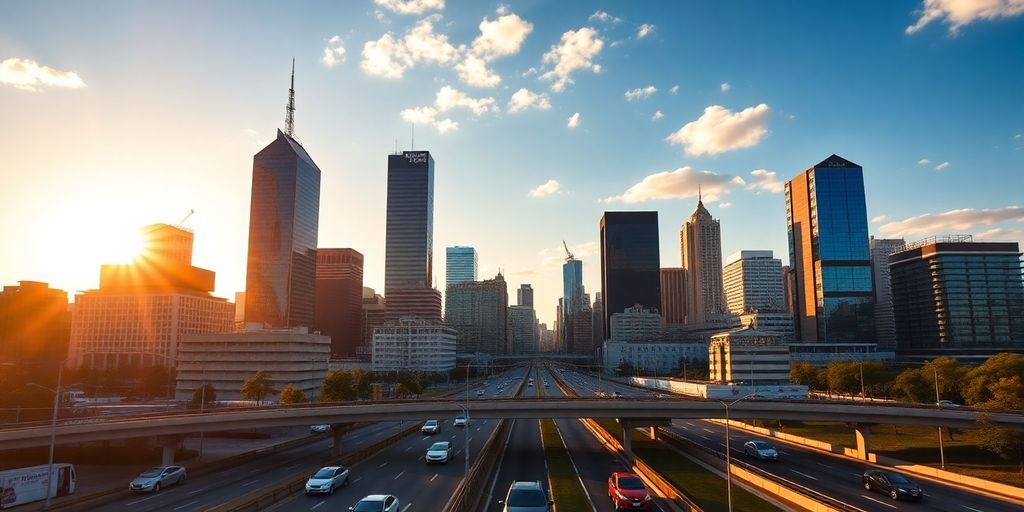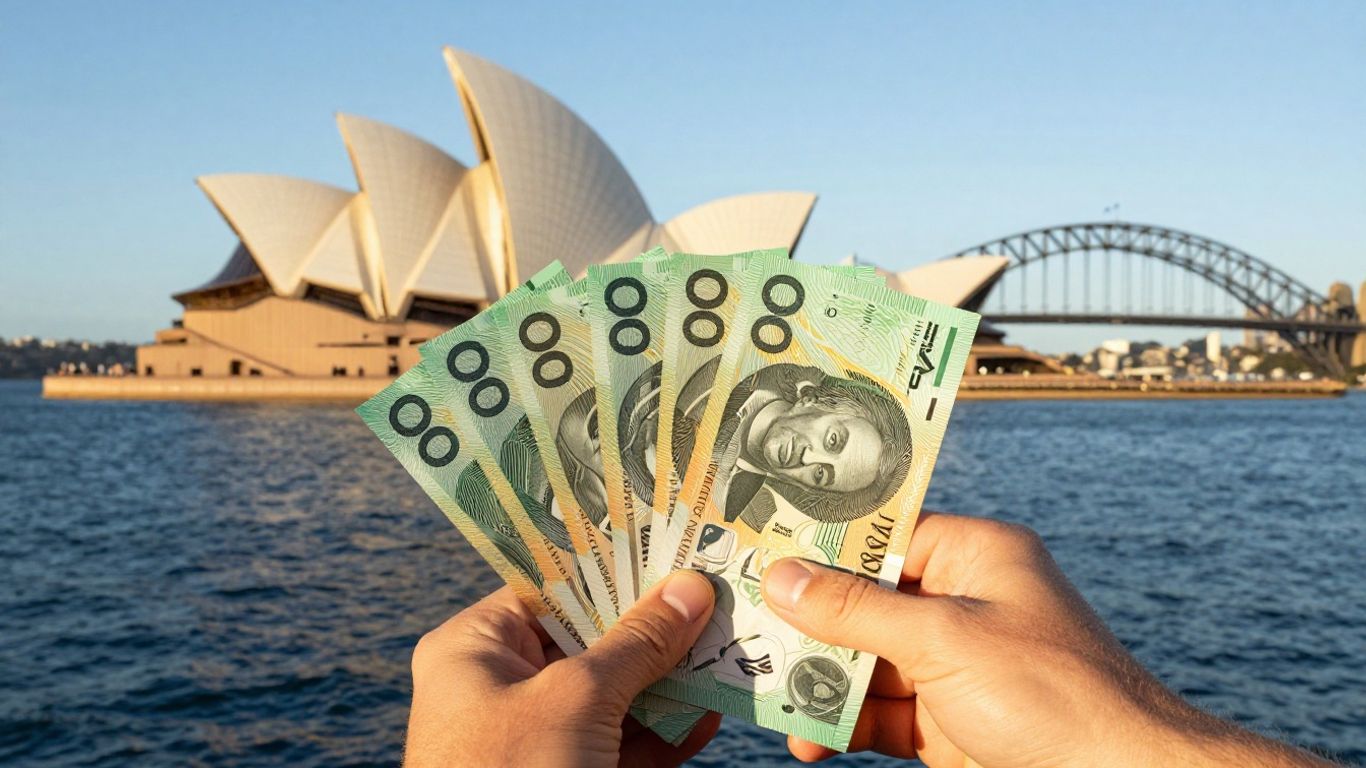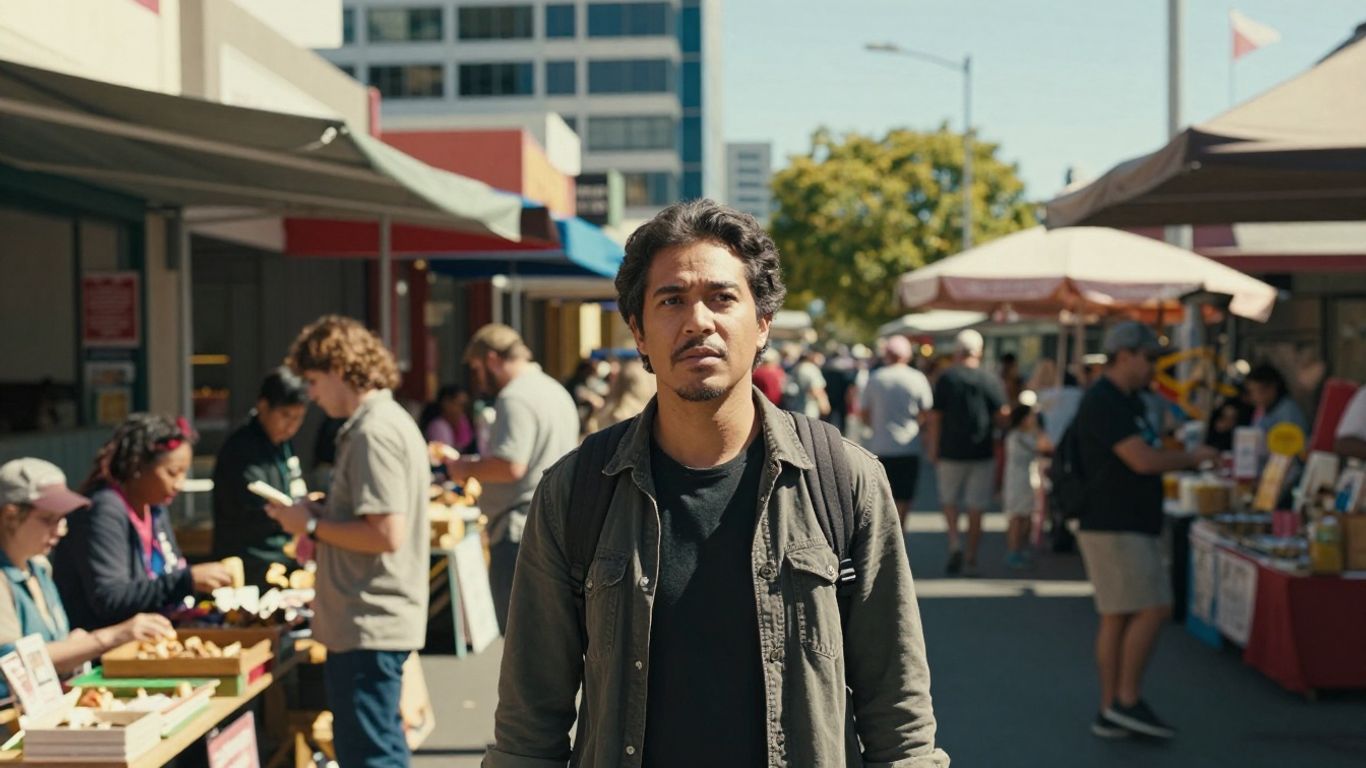G’day, everyone! We’re having a squiz at the Herald Sun today, that big old newspaper that lands on Melbourne doorsteps every morning. It’s a bit of a local icon, always stirring the pot and giving us plenty to chew on. We’ll be looking at how it shapes what folks talk about, what goes on behind the scenes, and how it’s dealing with all the changes happening in the news world. So, grab a cuppa, and let’s get stuck in!
Key Takeaways
- The Herald Sun has a big impact on what Victorians think and talk about every day.
- Understanding how news is made, especially at a big paper like the Herald Sun, helps us see the bigger picture.
- The way the Herald Sun covers politics and big events can really sway public opinion.
- Traditional newspapers are doing it tough with all the digital stuff happening, and the Herald Sun is no exception.
- It’s important to think about where our news comes from and how it might be influenced, even from a paper as familiar as the Herald Sun.
Unpacking the Herald Sun’s Daily Scoop
Behind the Headlines: What Really Sells Papers?
Okay, so what actually gets people to pick up the Herald Sun each day? Is it the hard-hitting investigative journalism, or the celebrity gossip? Probably a bit of both, let’s be honest. It’s a constant balancing act, trying to deliver news that matters while also keeping readers entertained. The trick is finding that sweet spot where serious reporting meets engaging storytelling.
- Sensationalism: Let’s face it, a bit of drama sells.
- Local News: People care about what’s happening in their backyard.
- Sport: Footy, cricket, you name it, we’re obsessed.
It’s a tough gig. You’re trying to inform the public, but you’re also trying to run a business. Sometimes those two things are at odds, and that’s where the real challenge lies.
The Chaser’s Take: Skewering Aussie Media
Love ’em or hate ’em, The Chaser boys have a knack for holding a mirror up to the media landscape. Their brand of satire can be brutal, but it often hits the mark. They’re not afraid to take on the big players, and that includes the Herald Sun. It’s good to have someone keeping us honest, even if it stings a little. You can see media scrutiny in action when they’re on the job.
Journalism’s Core: Truth and Public Trust
At the end of the day, journalism is about truth and public trust. Without those two things, we’re just peddling opinions. It’s a responsibility we take seriously, even when it’s not always easy. We strive to deliver accurate, fair, and balanced reporting, even when it means ruffling a few feathers. It’s about upholding the values of Australian journalism and ensuring the public is well-informed.
Political Punch-Ups and Press Power

Gillard Versus News: A Media Showdown
Remember the Gillard years? It wasn’t just about policy; it was a full-on media circus. The relationship between Julia Gillard and News Corp was, shall we say, frosty. It felt like every move she made was under intense scrutiny, often framed in a way that didn’t exactly paint her in the best light. You couldn’t escape the feeling that there was a deliberate campaign to undermine her government. It raises the question: how much does media bias actually influence public opinion? It’s a tough one, but it definitely felt like the latest news was often more about the punch-up than the policy.
The Bolt Factor: Columnist Controversy
Andrew Bolt. The name alone is enough to spark a debate at any Aussie BBQ. Love him or hate him, there’s no denying he’s a powerful voice in the Australian media landscape. His columns in the Herald Sun regularly stir up controversy, often touching on sensitive topics like race, climate change, and politics. He’s a master of political messaging, and his influence is undeniable. But with that influence comes responsibility, and many question whether he always uses it wisely. It’s a constant battle between free speech and the potential for harm.
Murdoch’s Reach: Shaping the Australian Narrative
Rupert Murdoch. The media mogul whose name is synonymous with power and influence. His News Corp Australia owns a significant chunk of the Aussie media, including the Herald Sun. This gives him a massive platform to shape the national narrative. The question is, how much control should one person have over the information we consume? It’s a debate that’s been raging for years, and it’s not going away anytime soon. Some argue that Murdoch’s media outlets push a particular agenda, while others defend his right to run his businesses as he sees fit. Either way, his media ownership is a force to be reckoned with.
The power of the media to influence public discourse is immense. It’s not just about reporting the news; it’s about framing the issues, setting the agenda, and shaping public opinion. When a single entity controls a large portion of the media landscape, it raises serious questions about diversity of opinion and the potential for bias.
The Shifting Sands of Australian Journalism
Digital Disruption: Old Media’s New Challenges
The internet has really shaken things up for Aussie journalism. It’s not just about newspapers selling fewer copies; it’s a whole new ball game. Traditional media outlets are scrambling to adapt to a world where news is instant and often free. It’s tough out there, and some haven’t made the transition smoothly.
- Revenue streams are drying up.
- Younger audiences are online.
- The 24/7 news cycle is relentless.
It’s a real worry seeing quality journalism struggle. We need to find a way to support it in this digital age, or we risk losing a vital part of our democracy. It’s not just about profits; it’s about keeping the public informed.
Branded News: Commercialism Versus Truth
These days, it’s getting harder to tell the difference between a news story and an advert. More and more, news outlets are relying on sponsored content and partnerships to stay afloat. But where do you draw the line? Is it okay if branded news starts influencing what gets reported and how? It’s a slippery slope, and it could erode the public’s trust in the media.
Media Ethics: A Code for the Craft
With all the changes happening in journalism, it’s more important than ever to have a strong ethical code. Things like accuracy, fairness, and independence are non-negotiable. But what happens when those principles clash with the pressure to get clicks and make money? It’s a constant balancing act, and it requires journalists to be more vigilant than ever. The Media Alliance Code of Ethics is a good starting point, but it’s up to each individual journalist to uphold those values in their daily work.
Beyond the Front Page: Deeper Dives

Asylum Seekers: The Media’s Role in Policy
Okay, so we all know the asylum seeker issue is a hot potato, right? But how much does the media actually shape the policies around it? Turns out, quite a bit. Sensational headlines and emotionally charged stories can really sway public opinion, which then puts pressure on pollies to act. It’s a tricky situation, because the media’s supposed to be reporting the facts, not driving the agenda. But let’s be honest, that line gets blurred all the time.
- Focus on individual stories over systemic issues.
- Use of loaded language (think
Inside the Newsroom: Power and Influence
Editor-in-Chief: The Power of Chris Mitchell
Being the Editor-in-Chief is a big deal. They basically run the show, deciding what gets covered and how. It’s not just about picking stories; it’s about setting the tone for the whole paper. Someone like Chris Mitchell, for example, would have had a massive influence on the Herald Sun’s direction during his time. It’s a position that comes with a lot of responsibility, shaping public opinion and holding power to account (or not!).
Press Conferences: Beyond Door-Stop Interviews
Press conferences are more than just politicians answering questions. They’re carefully staged events, designed to control the message. The media’s job is to cut through the spin, but it’s not always easy. It’s a constant battle for journalists to get real answers and avoid being manipulated. It’s a bit of a dance, really, with both sides trying to get what they want.
It’s easy to forget that press conferences are a performance. Politicians are trying to sell something, and journalists are trying to find the truth. The public is caught in the middle, trying to figure out who to believe.
The Megaphones: Who’s Really Influencing Opinion?
It’s not just the journos and editors who shape public opinion. Think tanks, lobby groups, and even wealthy individuals can have a huge impact. They use the media as a megaphone index to amplify their messages and influence policy. It’s important to be aware of who’s behind the stories we read and the opinions we hear.
Here’s a quick look at some of the key players:
- Media Owners: They set the overall direction.
- Editors: They decide what gets covered.
- Columnists: They offer opinions and analysis.
- Think Tanks: They provide research and policy recommendations.
It’s a complex web of influence, and it’s crucial to understand how it works to be a truly informed citizen.
The Herald Sun’s Impact on Public Discourse
Political Messaging: What Makes an Effective Advert?
Political advertising is a beast of its own. What works? What falls flat? It’s not just about catchy slogans; it’s about hitting the right emotional chords and, crucially, having credibility. A slick ad with a dodgy message is just a waste of money. Think about the last election – what ads stuck in your head, and why?
Tolerance and Demise: The Rise of Angry Froth
There’s a lot of anger in the media these days, and it seems to be getting louder. You see it in talkback radio, online comments, and even in some of the opinion pieces in the papers. Is this just people letting off steam, or is it something more worrying? Are we becoming less tolerant as a society? It’s a tough question, and there aren’t any easy answers. It’s hard to ignore the rise of groups fuelled by this ‘angry froth’, often echoing sentiments from shock jocks and controversial columnists. It makes you wonder about the state of public debate.
Mapping Today’s Journalism: Reporting Reality
Journalism is supposed to be about reporting the facts, but what happens when the facts are contested? Take climate change, for example. Most scientists agree it’s happening, but some people still deny it. Should journalists just report both sides, or should they call out the deniers? It’s a tricky balancing act. It’s important to consider how traditional media’s influence is changing in the face of these challenges.
It feels like we’re living in a world where everyone has their own version of the truth. The challenge for journalism is to cut through the noise and find some common ground. It’s not easy, but it’s more important than ever.
Here’s a quick look at how different news outlets might approach a complex issue:
| News Outlet | Stance on Issue X | Reporting Style |
|---|---|---|
| Herald Sun | Leaning Right | Opinionated, provocative |
| The Age | Centre-Left | Balanced, analytical |
| ABC News | Neutral | Objective, factual |
Navigating the Digital News Landscape
SBS On Demand: Catching Up on Content
Alright, so you missed the 6pm news? No worries, mate. SBS On Demand is your go-to for catching up on current affairs, documentaries, and even a bit of international flavour. It’s free, easy to use, and you can watch it on your telly, tablet, or phone.
- Browse by category.
- Create a watchlist.
- Stream on demand.
It’s a fair dinkum way to stay informed without being glued to the TV at a specific time. Plus, they’ve got some ripper dramas and comedies too.
WordPress and Thesis: Blogging for Beginners
Fancy yourself a bit of a wordsmith? Want to share your opinions with the world? WordPress is the platform, and Thesis is a theme that gives you a heap of control over how your blog looks. It’s not as scary as it sounds, and there are plenty of tutorials online to get you started.
- Choose a domain name.
- Install WordPress.
- Customise your theme.
NBN and Piracy: The Digital Dilemma
The NBN was supposed to solve all our internet woes, right? Faster speeds, better access… but it’s also brought the issue of piracy into sharper focus. With faster connections, downloading movies and music becomes easier, but it also raises questions about copyright and the rights of content creators. It’s a tricky situation, and there’s no easy answer. The debate around digital dilemma continues.
| Aspect | Pro | Con |
|---|---|---|
| Faster Speeds | Easier access to legal streaming services. | Increased potential for illegal downloads. |
| Wider Coverage | More Australians can access online content. | Difficult to monitor and enforce copyright laws across a wider area. |
| Economic Impact | Potential for growth in the digital economy. | Threat to the entertainment industry due to piracy. |
Wrapping It Up: Your Daily Dose of Aussie News
So, there you have it. The Herald Sun, for all its quirks, really does try to give you a good look at what’s happening around Australia every day. It’s not always perfect, no paper is, but it’s a solid go-to for keeping up with the local stuff, the big news, and even a bit of sport. Whether you’re after the latest on the footy or what the politicians are up to, they’ve usually got something for you. It’s just part of the daily routine for a lot of us, and it’s probably going to stay that way for a while yet.
Frequently Asked Questions
What’s the Herald Sun all about?
The Herald Sun is a big newspaper in Australia, especially in Victoria. It’s known for its strong opinions and often covers local news, sports, and politics with a bit of a punchy style. Think of it as a daily chat with a mate who’s got something to say about everything.
Does the Herald Sun have a certain ‘side’ when it comes to politics?
Well, folks often say the Herald Sun leans a bit to the right, meaning it generally supports more conservative ideas and politicians. It’s part of Rupert Murdoch’s News Corp, which owns a fair chunk of media in Australia, so its views can really get people talking.
How is the Herald Sun dealing with everyone reading news on their phones and computers?
Like many newspapers, the Herald Sun has been figuring out how to deal with everyone getting their news online. They’ve got a website and apps, but it’s a bit of a wild west out there with so many ways to get information now. They’re trying to keep up with the times!
Does the Herald Sun ever get into trouble or big fights?
Sometimes, the Herald Sun gets into a bit of a stoush, especially with politicians or other media. They’re not shy about sharing their opinions, and that can sometimes lead to big arguments, like when former Prime Minister Julia Gillard had a public disagreement with News Limited.
What’s the big deal about ‘branded news’ and ‘media ethics’?
Journalism is meant to tell the truth and help people understand what’s going on. But sometimes, when newspapers are also trying to make money, it can get tricky. The Herald Sun, like others, has to balance telling important stories with keeping the business going.
How much does the Herald Sun really affect what Australians think?
The Herald Sun, being such a big paper, can really shape what people think and talk about. From what’s happening in parliament to local footy scores, it influences daily chats and how people see the world around them.





